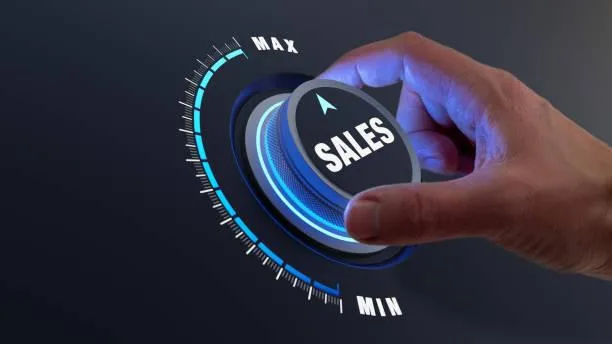
Pencil More Deals
Using Fewer Resources
Dealers using the VisQuanta AutoMaster Suite, save an
average of 220 hours of sales staff follow up time per month.

Pencil More Deals
Using Fewer Resources
Dealers using the
VisQuanta AutoMaster Suite
Save an average of 220 hours
Of sales staff follow up time per month.

ABOUT US
VisQuanta Ai & Training Services Are Enhancing Dealership Efficiencies Every Hour.
The VisQuanta AutoMaster Suite is a collective of Ai powered super tools, combined with a team of Automotive sales experts, designed to better lead conversion and client retention through natural conversation.
Paired with the AutoMaster Suite, VisQuanta offers an organic and customized approach to training services for dealership sales staff and management, providing your store with an unfair advantage to your competition.
And the best part is, we seamlessly integrate into the CRM's that your dealership already use!
Built For The Auto Industry
By Automotive Professionals
VisQuanta AutoMaster Suite
Automate Success
Sales Process Improvement Training
Have you ever purchased software, only to spend the next 24 hours learning to use it? VisQuanta believes that to be successful, our clients need to be beyond well versed. Ongoing conversation monitoring, custom sales and staff trainings, paired with performance audits are completed regularly by our client success team. VisQuanta provides not only hundreds of new sales opportunity for your team, but also includes the training and best practices, ensuring future successes for our clients.

Database Reactivation
Connect with leads that you thought were no longer viable by reactivating them effortlessly. Watch our powerful, conversational Ai spark conversations with old leads, generating hundreds of appointments for your sales team. Your sales staff may stop their follow up after days, weeks, or months, VisQuanta Ai does not. Get ready to pull money out of thin air, bringing a whole new element to increased lead conversion.

Speed To Lead Services
Instantly start conversations with leads from the sources you already trust and rely on. Connect with social media leads, website traffic, leads pushed to your CRM from online lead sources. Connect and converse with leads on your website instantly through our innovative web chat tools. Give your leads less time to miss out on the chance to meet your team in person.

Reputation Management
Your online reputation says a lot about your store. If people say you are the best, you are the best. We believe in making your own luck. VisQuanta will engage past clients and capture new reviews, respond in an organic way and proactively correct negative reviews, improving your reputation online. VisQuanta can also automate the organic review responses for ALL of your previous online reviews.

VisQuanta AutoMaster Suite
Automate Success
Sales Process Improvement Training
Have you ever purchase software, only to spend the next 24 months learning to use it? VisQuanta believes that to be successful, our clients need to be beyond well versed. Custom sales and staff trainings, paired with performance audits are completed regularly by our client success team. VisQuanta provides not only hundreds of new sales opportunities for your team, but also includes the training and best practices, ensuring future success for all VisQuanta clients.


Database Reactivation
Connect with leads that you thought were no longer viable by reactivating them effortlessly. Watch our powerful, conversational Ai, spark conversations with old leads, generating hundreds of appointments for your sales team. Your sales staff may stop their follow up after days, weeks, or months, VisQuanta Ai does not. Get ready to pull money out of thin air, bringing a whole new element to increased lead conversion.
Speed To Lead Services
Instantly start conversations with leads from the sources you already trust and rely on. Connect with social media leads, website traffic and leads pushed to your CRM from online lead sources. Connect and converse with leads on your website instantly through our innovative web chat tools. Give your leads less time to miss out on the chance to meet your team in person.


Reputation Management
Your online reputation says a lot about your store. If people say you are the best, you are the best. We believe in making your own luck. VisQuanta will engage past clients and capture new reviews, respond in an organic way and proactively manage potential negative reviews, improving your reputation online. VisQuanta can also automate the organic review responses for ALL of your previous online reviews.

Chief Operating Officer
Christopher Wilson

Chief Technical Officer
Aaron Rowley

Chief Sales Officer
William Voyles

Chief Marketing Officer
Lavar Harper

Chief Finance Officer
Matt Nixon
What Are Our Customers Saying ?
I couldn't be happier with the window tinting service I received from Auto Window Tinting. They transformed my car into a sleek and stylish ride while providing excellent UV protection.
JANE DOE
Auto Window Tinting is the best in the business! I was initially concerned about finding a tinting service that complied with local regulations, but they made it effortless.
JANE DOE
INPUT
JANE DOE
How Does The VisQuanta
AutoMaster Suite Work?

Our team at VisQuanta is dedicated to improving our client's sales processes and efficiencies through custom Ai automations. Every system is customized to your dealership and is built to help you better serve your customer base. Improve your dealership sales output through automation, sales training and improved customer communication. Experience the VisQuanta advantage today.
-The Team At VisQuanta
Frequently Asked Questions
Does VisQuanta Integrate With My Current CRM?
Yes, VisQuanta can integrate with any CRM that your store currently uses. Our technical staff will create all necessary integrations for your account and setup during the build process.
When Can I Expect My First Vehicle Sale From VisQuanta?
On average, dealerships using the VisQuanta AutoMaster Suite, see actual sold results with the first week. This does vary depending on the dealership location, lead flow and sales team capacity.
Can VisQuanta Be Used Alongside Our Other Ai Providers?
Yes, VisQuanta's AutoMaster Suite seamlessly works alongside the systems that you already use. Your team is likely to find that VisQuanta can replace service features of other Ai providers, but VisQuanta can work alongside other providers with no issues.
Does VisQuanta Adhere To State And Federal SMS Compliance Standards?
Yes, VisQuanta's compliance department works around the clock to ensure that our systems, messages and communication with leads is fully compliant, meeting all State and Federal TCPA regulations. Compliance checks are a routine part of monthly audits performed by our staff.
How Long Does The AutoMaster Suite Take To Build?
VisQuanta's tech team will start the custom buildout of your system and complete the system architecture in 14 business days. Your AutoMaster Suite will then be ready to launch.
Is There A Monthly Or Annual Commitment?
VisQuanta believes in earning your business and keeping our client base beyond satisfied. For this reason, we do not require a monthly commitment. All of our services operate on a month to month basis and typically after 2-3 months of service, we see clients paying for 12 months of service at once, and receiving a discounted rate.
Frequently Asked Questions
Does VisQuanta Integrate With My Current CRM?
Yes, VisQuanta can integrate with any CRM that your store currently uses. Our technical staff will create all necessary integrations for your account and setup during the build process.
When Can I Expect My First Vehicle Sale From VisQuanta?
On average, dealerships using the VisQuanta AutoMaster Suite, see actual sold results with the first week. This does vary depending on the dealership location, lead flow and sales team capacity.
Can VisQuanta Be Used Alongside Our Other Ai Providers?
Yes, VisQuanta's AutoMaster Suite seamlessly works alongside the systems that you already use. Your team is likely to find that VisQuanta can replace service features of other Ai providers, but VisQuanta can work alongside other providers with no issues.
Does VisQuanta Adhere To State And Federal SMS Compliance Standards?
Yes, VisQuanta's compliance department works around the clock to ensure that our systems, messages and communication with leads is fully compliant, meeting all State and Federal TCPA regulations. Compliance checks are a routine part of monthly audits performed by our staff.
How Long Does The AutoMaster Suite Take To Build?
VisQuanta's tech team will start the custom buildout of your system and complete the system architecture in 14 business days. Your AutoMaster Suite will then be ready to launch.
Is There A Monthly Or Annual Commitment?
VisQuanta believes in earning your business and keeping our client base beyond satisfied. For this reason, we do not require a monthly commitment. All of our services operate on a month to month basis and typically after 2-3 months of service, we see clients paying for 12 months of service at once, and receiving a discounted rate.
VisQuanta Testimonials & Reviews
Contact Us
I consent to receiving communications & contact from VisQuanta. I understand I can opt-out at any point by contacting VisQuanta.